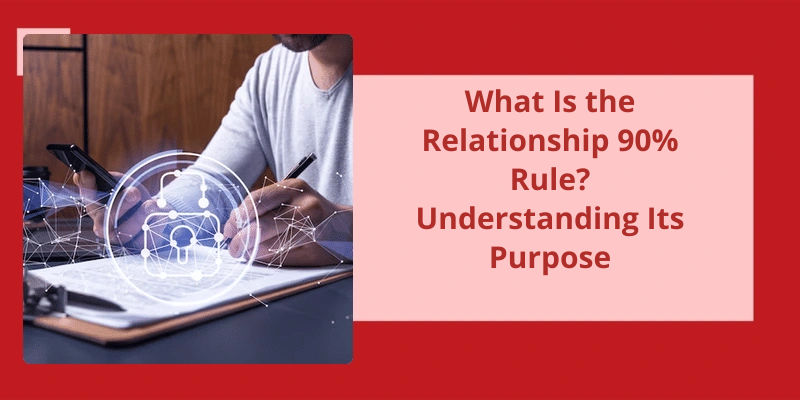After going through a breakup, it can be difficult to navigate the tumultuous emotions that come with it. Some people may feel the urge to immediately reach out to their ex-partner while others may choose to completely cut them off. However, there’s a popular rule that many therapists and relationship experts recommend when it comes to post-breakup communication: the 90-day rule. This rule states that for a period of 90 days after the breakup, there should be no contact between the two parties. This is because this time frame allows for individuals to process their emotions, heal and gain a better understanding of themselves. The 90-day rule can be a valuable tool for anyone trying to move on from a breakup and improve their emotional well-being.
What Is the 7 7 7 Rule in Relationships?
Some sources attribute the 7 7 7 rule to a French mathematician named Blaise Pascal, while others believe it to be a more recent, pop culture creation. Regardless of it’s origins, the 7 7 7 rule has become a popular guideline for relationships, particularly those with a large age gap.
Many argue that the rule exists to prevent power imbalances in a relationship. When one partner is significantly younger than the other, they may be less experienced or less established in their career or personal life. This can lead to an unequal distribution of power in the relationship, with one partner calling the shots and the other feeling powerless. By ensuring that the younger partner isn’t too much younger than the older partner, the 7 7 7 rule aims to minimize the likelihood of this power imbalance occurring.
Critics of the 7 7 7 rule argue that it’s arbitrary and doesn’t take into account the complexities of relationships. Age is just one factor in a relationship, and there are many other variables that can contribute to power imbalances or social stigma. For example, a couple may face discrimination or judgment from others based on differences in race, religion, or socioeconomic status, regardless of their ages. Additionally, the idea that relationships should adhere to societal norms is itself limiting and oppressive.
Personal values, compatibility, and attraction are all equally important, if not more so. Furthermore, the rule can be adjusted based on individual circumstances. For example, someone who’s older and more established may feel comfortable dating someone who’s significantly younger, while someone who’s still figuring out their career and personal life may prefer a partner who’s closer in age and life experience.
Ultimately, the 7 7 7 rule is just a guideline, not a hard and fast rule. Every relationship is unique and should be evaluated on it’s own merits. Age is just one factor to consider, and it shouldn’t overshadow the more important aspects of a relationship, such as trust, communication, and mutual respect. Whether a couple adheres to the 7 7 7 rule or not, the key to a healthy relationship is mutual understanding and support.
The Pros and Cons of Dating Someone Significantly Older or Younger Than You
Dating someone significantly older or younger than you comes with it’s own set of advantages and disadvantages. While the experience can be exciting and refreshing, it can also pose challenges that can be hard to overcome. Some of the benefits may include gaining new perspectives and learning new things, while some of the drawbacks may include dealing with different stages of life and varying levels of maturity. Ultimately, the decision to date someone significantly older or younger will depend on personal preferences and priorities.
Conclusion
It provides individuals with the necessary time and space to process their emotions, reflect on their needs and wants, and ultimately move forward in a healthy manner. By adhering to this rule, individuals can gain a greater sense of self-awareness, develop a stronger sense of self-love and esteem, and potentially even rekindle their relationship with their former partner with a newfound perspective and appreciation. Overall, the 90-day rule underscores the importance of self-care and self-reflection in the aftermath of a breakup, and serves as a reminder that healing takes time and patience.






